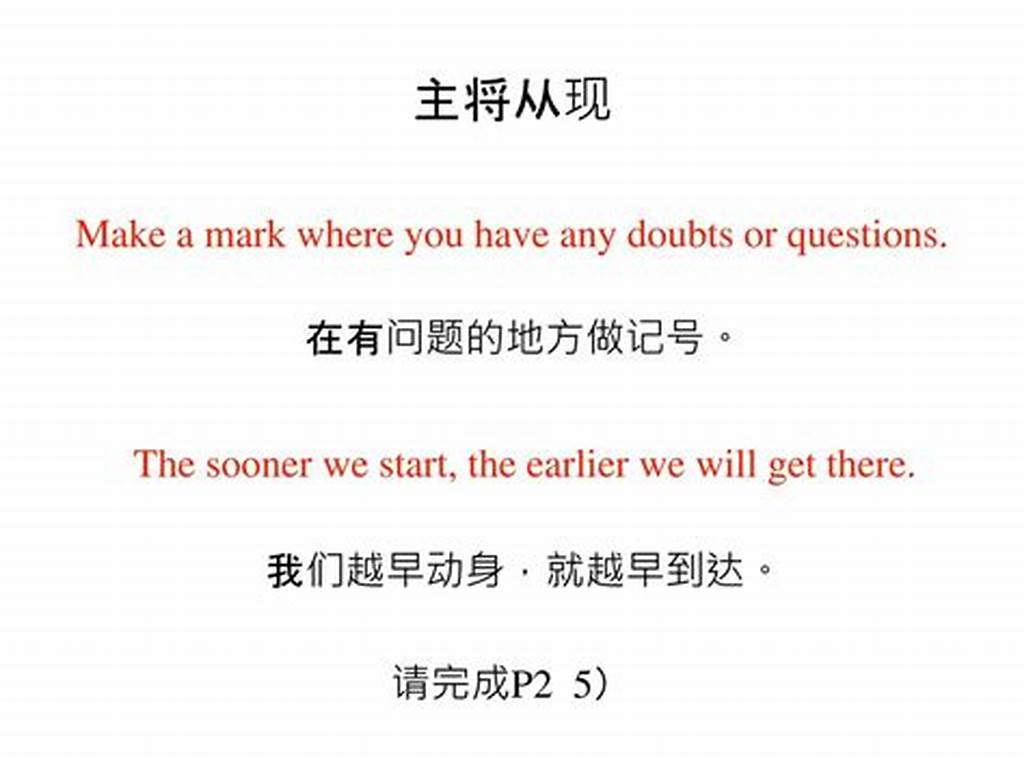主将从现的用法和公式
主将从现用法和公式:
根据英文语法规定,当主句的谓语动词是一般将来时,那么时间或条件状语从句的谓语动词只能用一般现在时来表示将来要发生的动作。例如:
I’ll tell him the news when he comes back.
他回来时,我将告诉他这个消息。
If you take the job, they will talk with you in greater details.
如果你接受这份工作,他们将和你谈谈细节。
1、条件状语从句
它引导的从句使用一般现在时表将来的意思,这时主句和从句在意义上仍保持一致。
如:If he goes to England,he will have to learn English.
If it is fine tomorrow, we will go outing.
2、由if引导从句
这里if所引导的是真实条件句【即所假设的条件有可能成为现实,表达所假设的条件实现时会出现的状况或者会采取的行为】
有时,我们会用并列结构的祈使句来表达这种类型的条件句
If you don’t give him some food,he will starve .
Give him some food,or/elsehe will starve.
即所假设的条件有可能成为现实
祈使句加and和主将从现互换,and后边的将来时相当于条件状语从句中主句的将来时,and前边的祈使句相当于条件状语从句的从句。
例如:
祈使句+and:
Turn on the television,and you will see advertisements showing happy families.
主将从现:
If you turn on the television, you will see advertisements showing happy families.
扩展资料
在if引导的从句中“will +动词原形”并不单纯的表示将来的意义,这里的“will”是一个表示“意愿”的情态动词,相当于“be willing to【愿意】”
当然这种“will+动词原形”的if从句在一些场合是不能随便用的。
比如我们可以说成:
if he gets my letter in time,he’ll be able to change his plans
如果他能及时收到我的信,他就能改变他的计划。
却不能说成:if he will get my letter in time,he’ll be able to change his plans.
另外,在if引导的从句中还可以使用“would+动词原形”的结构,这种用法还是表示“意愿”,常表示客气的请求。
这时主句既可以用will/shall+动词原形,以可以用“would(will)/should(shall)/could(can)/might(may)+动词原形”
如:if you would try Italian food,you would like it.
